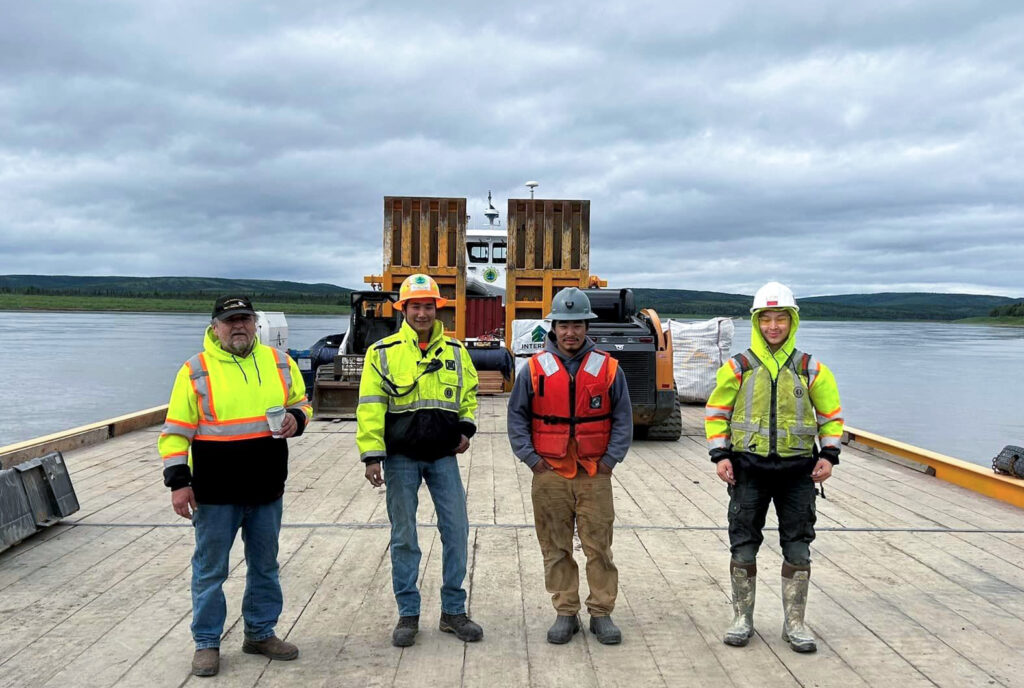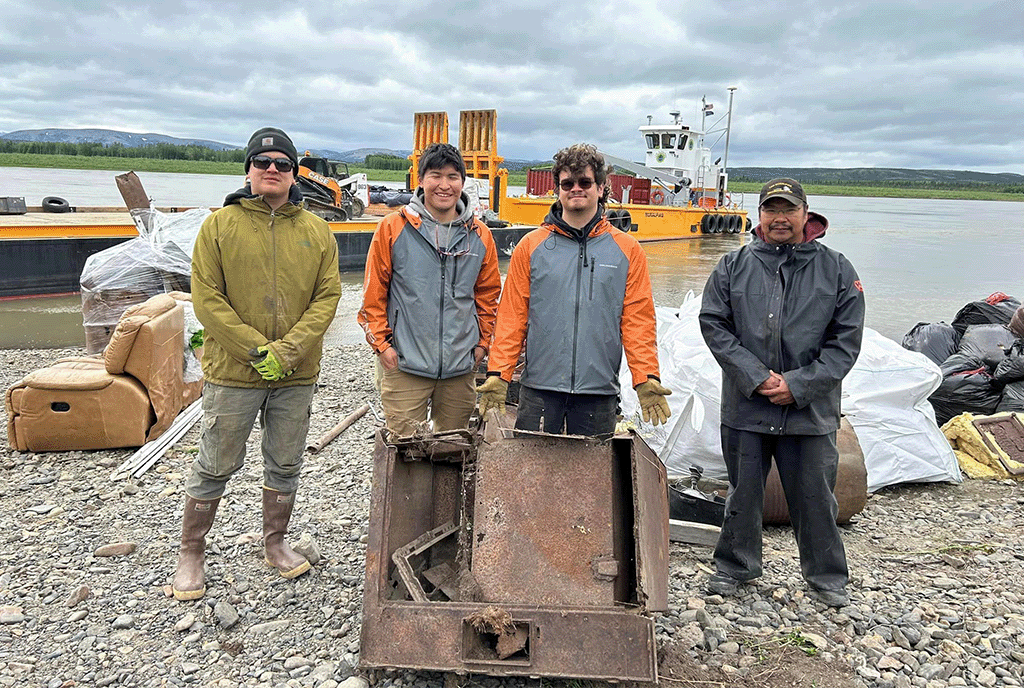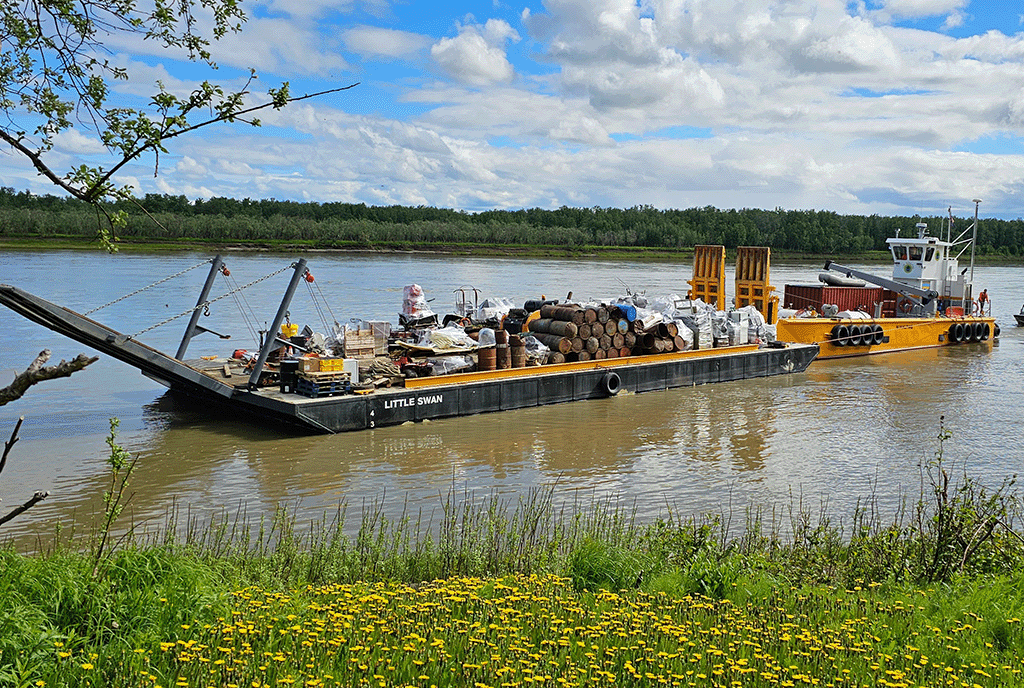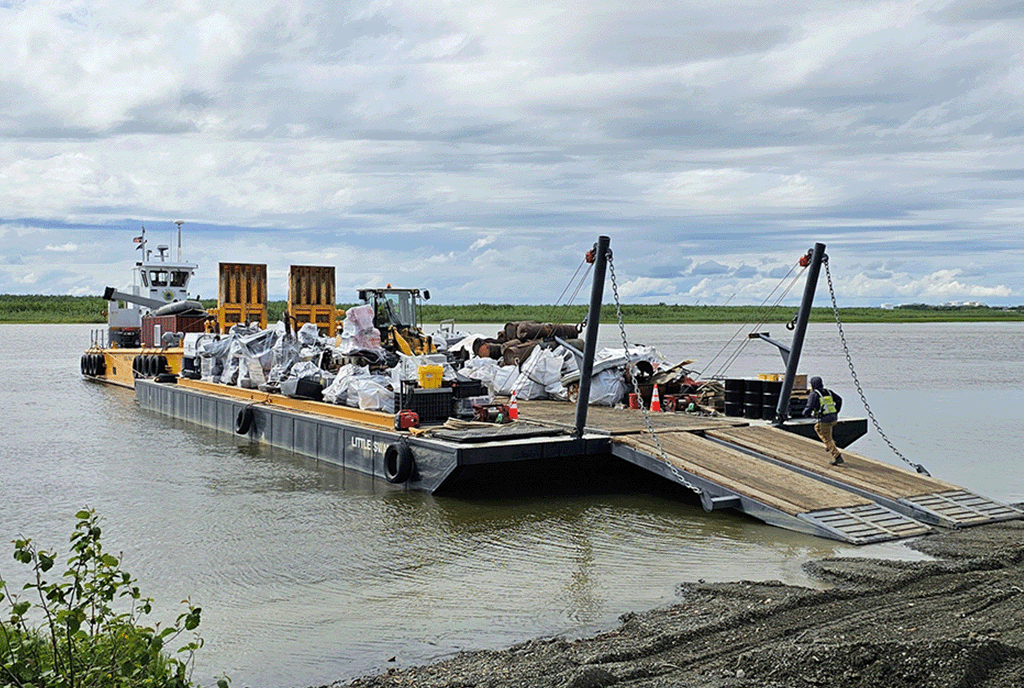Major Expansion of Donlin Backhaul Project
2023 Efforts Include Lower Yukon Pickups and Fish Camp Visits
Storyknife, July/August 2023 edition




The Donlin Gold Backhaul Project to remove hazardous household and electronic waste from Y-K Region villages by barge includes exciting changes this year. These include:
- A pilot cleanup project at fish camps along the Kuskokwim River
- Large appliance pickups in five Kuskokwim River villages
- In-person collection events in four Lower Yukon villages
The annual backhaul project began in mid-June with the fish camp visits and ends August 30 with an e-waste collection event in Bethel. On that date, the material collected from all of the communities will be consolidated for shipment out of the region.
Usually, the backhaul project lasts a few weeks. This year, the barge will be running for most of the summer due to this year’s expanded program.
The project is a collaboration between Donlin Gold, the Association of Village Council Presidents, Delta Backhaul Company, Fox Air, Grant Aviation, shipping companies, the Native Village of Napaimute which provides the barge, and participating Tribes.
Since its inception, the backhaul project has collected and removed nearly a half-million pounds of electronic waste from Y-K villages.
“A lot of the legacy waste is out,” says Rebecca Wilmarth, Donlin Gold Community Relations Supervisor.
Fish Camp Pickups
In mid-June, for the first time, the backhaul project spent five days visiting fish camps along the Kuskokwim River. The objective of these visits was to remove items like old engines, old nets, old batteries, waste oil, antifreeze, paint and chemicals, large and small appliances, electronic waste, plastics and scrap metal.
“We’ve been talking about doing fish camp visits for years and were able to make it happen this year,” says Samantha Angaiak-Miller, Donlin Gold Communications and Community Liaison Coordinator.
Angaiak-Miller said the Donlin Gold team aimed to visit 10 fish camps between Napaimute and Lower Kalskag before moving to the next phase of the project on the Lower Yukon.
Lower Yukon Villages
While Lower Yukon villages have always been part of the backhaul program through AVCP’s e-waste collection, they have air shipped their waste instead of receiving barge visits.
This July, the backhaul project will visit Marshall, Pilot Station, St. Mary’s and Pitka’s Point to pick up hazardous household and electronic waste like TVs, microwaves, batteries, and used paint, oil and chemicals.
Donlin Gold and Delta Backhaul Company arranged to use Ruby Marine to haul materials collected in the Yukon villages to Nenana, from where they will be trucked to Anchorage.
“We decided this year to visit the Yukon communities in person to demonstrate our support for the greater region,” Wilmarth says.
Large Appliances
Over the past six years, the backhaul project has only picked up “small” appliances like old TVs and computers.
This year, backhaul pickups in Kuskokwim River villages will focus on large appliances like washers, dryers and refrigerators.
The village pickup locations are rotated every year. This year, pickups are scheduled in Tuntutuliak, Napakiak, Napaskiak, Kwethluk and Akiachak.
Delta Backhaul Company, which coordinates the collection and packaging process, will be using an appliance baler, stationed on Napaimute’s barge, to crush the appliances before they are barged to Bethel.
Using the baler will dramatically increase the number of appliances that can be shipped per container, allowing the project to remove three times the amount of material, according to Wilmarth.
In Bethel, the baled appliances will be loaded into shipping containers and shipped to Anchorage, and on to the Lower 48 for recycling.